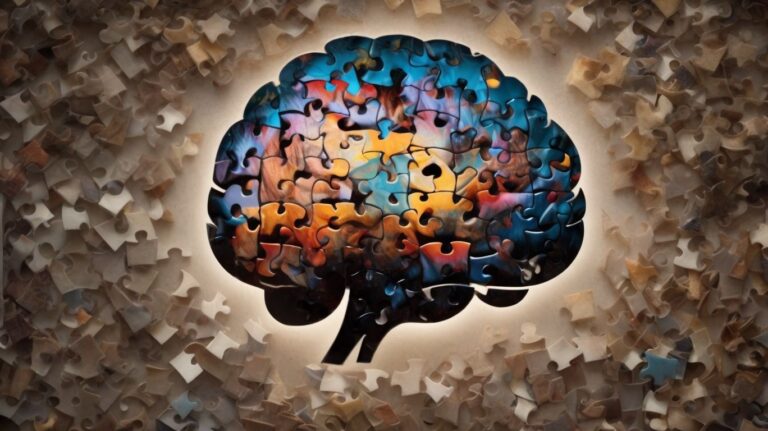Egocentrism, a psychological phenomenon rooted in self-centered perspectives, can have a profound impact on individuals and their relationships. From difficulty understanding others’ perspectives to a lack of empathy, this article explores how egocentrism manifests in individuals and the factors that contribute to its development.
We will delve into the effects of egocentrism, strategies to overcome it, and its relationship to narcissism. Join us as we unravel the complexities of egocentrism and its implications on personal growth and social interactions.
Contents
What Is Egocentrism?
Egocentrism, a concept introduced by Piaget in the theory of cognitive development, refers to the tendency of individuals to view the world solely from their own perspective.
This cognitive bias can be seen in young children who struggle to understand that others have different thoughts, beliefs, and perspectives. Egocentrism plays a crucial role in the development of theory of mind, which is the ability to attribute mental states to oneself and others. Piaget’s theory posits that egocentrism diminishes as children grow and develop their cognitive processes. Awareness and understanding of egocentrism are essential for educators and parents to foster empathy, social skills, and perspective-taking in children.
How Does Egocentrism Manifest in Individuals?
Egocentrism manifests in individuals through self-centered behavior, an inability to consider others’ perspectives, and challenges in understanding and regulating emotions.
Egocentric individuals often exhibit a strong focus on their own needs and desires, viewing the world primarily from their perspective.
This self-centeredness can lead to difficulties in empathizing with others, as they struggle to comprehend alternative viewpoints.
Their emotional responses may be intense and self-oriented, with a tendency to prioritize their feelings above those of others.
These behavioral patterns can affect interpersonal relationships, as individuals may struggle to connect emotionally with others due to their egocentric tendencies.
Difficulty Understanding Others’ Perspectives
Children often exhibit difficulty in understanding others’ perspectives, particularly in social interactions that require perspective-taking and empathy.
Research indicates that the ability to grasp different viewpoints is a complex cognitive skill that develops gradually throughout childhood. Social interactions play a crucial role in shaping this capacity as children learn to navigate the diverse perspectives of their peers and adults.
Challenges in perspective-taking can lead to misunderstandings, conflicts, and difficulties in communication. It is essential for adults to provide guidance and encourage children to consider different viewpoints to foster their empathy and understanding of others.
Self-Importance and Self-Centeredness
During adolescence, self-importance and self-centeredness can influence relationships and shape personality traits, impacting social interactions and emotional development.
Egocentrism often leads adolescents to prioritize their own needs and desires over those of others, making it difficult for them to empathize or consider different perspectives.
This self-centered behavior can create conflict within relationships, as the focus on one’s interests may lead to disregard for the feelings and opinions of others.
Adolescents exhibiting egocentric tendencies may struggle with forming deep and meaningful connections, as their interactions may be dominated by a desire for personal validation and attention.
Lack of Empathy
A lack of empathy, stemming from social egocentrism, can hinder individuals’ ability to understand and respond to the emotions of others effectively.
Empathy plays a crucial role in how we connect with those around us. It involves not only recognizing the emotions of others but also experiencing them on a deeper level, creating a sense of shared understanding and connection. When individuals lack empathy, their interactions may come off as cold or insensitive, leading to misunderstandings and strained relationships. This emotional disconnect can have far-reaching effects, influencing not only personal relationships but also professional interactions and societal dynamics.
What Causes Egocentrism?
Egocentrism can stem from early developmental stages such as infancy, where cognitive and social egocentrism play crucial roles in shaping individuals’ perceptions of self and others.
Infancy is a critical period where the sense of self begins to develop, intertwined with the ability to perceive others. At this stage, cognitive egocentrism manifests as an individual’s struggle to understand that others may have different thoughts or perspectives. Social egocentrism further amplifies this by making it challenging for infants to grasp the emotions and intentions of those around them.
These egocentric tendencies in infancy can lead to misinterpretations of social cues and hinder effective communication. The inability to perceive the world from others’ viewpoints results in a skewed understanding of relationships and interactions.
Developmental Factors
Various developmental factors, as evidenced by research and experimental findings, contribute to the emergence and persistence of egocentrism in individuals.
One of the fundamental theories related to egocentrism is Jean Piaget’s cognitive development theory. Piaget proposed that egocentrism is a typical occurrence in the preoperational stage of child development, where children struggle to see things from perspectives other than their own.
Research studies have supported Piaget’s theory, showing that egocentrism tends to decrease as children progress through different developmental stages. Findings from neuroscientific studies suggest that brain regions responsible for perspective-taking and empathy play a crucial role in modulating egocentric tendencies.
Cultural Influences
Piaget and Vygotsky highlighted the role of cultural influences in shaping individuals’ perspectives, shedding light on how cultural norms and practices can impact egocentrism.
According to Piaget’s theory, egocentrism stems from the child’s inability to distinguish between their own perspective and that of others, heavily influenced by the ‘here and now’ aspect of their experiences. On the other hand, Vygotsky emphasized the importance of social interactions in developing perspectives, suggesting that culture plays a significant role in shaping individual egocentrism through shared experiences and communication.
Cultural norms act as a framework within which individuals interpret and respond to their environment, influencing behaviors and perceptions. For instance, in collectivistic cultures, where group harmony is valued over individual needs, egocentrism might be perceived differently compared to individualistic cultures that prioritize personal autonomy and independence. These contrasting cultural values contribute to varying manifestations of egocentrism across different societies.
Personality Traits
Certain personality traits, linked to cognitive processes and self-perception, can predispose individuals to exhibit varying degrees of egocentrism throughout their development.
For example, individuals high in narcissistic traits may display an exaggerated sense of self-importance, seeking admiration and validation from others to validate their self-worth. On the other hand, those with low self-esteem might exhibit defensive egocentrism as a coping mechanism to shield themselves from perceived threats. These variations in egocentric behavior can be influenced by a complex interplay of environmental factors, early experiences, and genetic predispositions.
What Are the Effects of Egocentrism?
The effects of egocentrism on relationships and social interactions have been extensively studied, with results indicating challenges in empathy and perspective-taking.
Research has shown that individuals with higher levels of egocentrism tend to have difficulty understanding the emotions and viewpoints of others, which can lead to strained interactions and conflicts in relationships. Studies have also revealed that egocentrism can hinder effective communication, as individuals focused on their own needs may overlook or dismiss the feelings of those around them. This lack of empathy can erode trust and intimacy, impacting the quality and longevity of relationships.
Strained Relationships
Traits associated with dominance and submission, as assessed on the dominance-submission axis, can contribute to strained relationships due to social egocentrism and self-centered behaviors.
Individuals demonstrating high levels of dominance traits may exhibit a tendency to assert control and seek power in relationships, often overlooking the needs and perspectives of others.
On the contrary, individuals with submissive traits may prioritize accommodating others, sometimes at the expense of their own desires.
When these contrasting traits interact within the dynamics of a relationship, conflicts may arise due to the clash of priorities and communication styles. The evaluation of dominance and submission on the dominance-submission axis becomes crucial in understanding how individuals navigate power imbalances and interpersonal challenges.
Difficulty in Social Situations
Emotional stability and the balance between warmth and coldness in interactions play a pivotal role in mitigating the challenges individuals face in social situations due to egocentrism.
When individuals exhibit emotional stability, they are better equipped to navigate complex social dynamics with resilience and empathy. The ability to strike a harmonious balance between warmth and coldness in interactions can significantly impact the quality of relationships one fosters. Those who lean too heavily towards warmth may risk overextending themselves, while those who exude excessive coldness might struggle to connect authentically. Understanding one’s own emotional responses and adjusting the warmth-coldness continuum accordingly can lead to more fulfilling and meaningful social interactions.
Inability to See Different Perspectives
Certain psychological constructs, including biases in perception and limitations in perspective-taking, can contribute to individuals’ inability to recognize and consider different viewpoints, a hallmark of egocentrism.
These psychological constructs shape the way individuals process and interpret information, often leading to a skewed understanding of the world around them. Perception biases can cause individuals to favor information that aligns with their existing beliefs, while limitations in perspective-taking can prevent them from stepping into others’ shoes.
As a result, individuals may struggle to grasp the complexities of diverse viewpoints and may inadvertently reinforce their own biases. Overcoming these hurdles requires a conscious effort to introspect, challenge one’s assumptions, and actively seek out differing perspectives.
How Can Egocentrism Be Overcome?
Overcoming egocentrism involves cultivating selflessness, fostering happiness through genuine connections, seeking feedback from others, and enhancing communication skills to bridge the gap between self and others.
Selflessness plays a crucial role in diminishing egocentrism and fostering a sense of interconnectedness with the world. By shifting the focus from the self to the well-being of others, individuals can create more harmonious relationships and contribute positively to their communities.
Fostering happiness through genuine connections further aids in breaking the barriers of self-absorption. Engaging in meaningful interactions and forming deep bonds with others can bring joy and fulfillment, reducing the need for constant self-validation.
Seeking feedback from others is a valuable practice that helps individuals gain different perspectives and insights. By embracing constructive criticism and learning from diverse viewpoints, people can expand their understanding and empathy towards others.
Enhancing communication skills is essential for effectively conveying thoughts and emotions while empathetically listening to others. By honing active listening, practicing clear expression, and being open to different communication styles, individuals can strengthen their connections and overcome egocentrism.
Developing Empathy
Developing empathy is essential for fostering authentic and durable happiness, establishing psychological connectedness, and nurturing meaningful relationships that transcend egocentrism.
Empathy serves as a cornerstone in enhancing one’s emotional intelligence and overall well-being. By placing oneself in another’s shoes, individuals gain a deeper understanding of different perspectives, leading to more harmonious interactions and a sense of shared humanity. Studies have shown that individuals with higher levels of empathy tend to have lower levels of stress and anxiety, as they are better equipped to navigate conflicts and communicate effectively. Moreover, empathetic individuals are more likely to form close bonds and create a supportive network of relationships that contribute significantly to their long-term happiness.
Practicing Active Listening
Practicing active listening, incorporating visual and auditory cues for priming effective communication, is a valuable skill in mitigating egocentrism and enhancing understanding in social interactions.
When individuals engage in active listening, they focus not only on the words being spoken but also on non-verbal cues such as facial expressions, tone of voice, and body language. By paying attention to these visual and auditory signals, one can better comprehend the speaker’s emotions and intentions, leading to more empathetic responses and improved rapport. This heightened awareness of both verbal and non-verbal cues plays a vital role in creating a meaningful dialogue and fostering deeper connections in interpersonal relationships.
Seeking Feedback from Others
Seeking feedback from others helps individuals navigate the dichotomy between the narrative self and the minimal self, fostering self-awareness and challenging egocentric tendencies.
Understanding the narrative self involves the personal stories and interpretations that shape one’s identity, reflecting on past experiences to construct a coherent self-concept. On the other hand, the minimal self pertains to the pure awareness of one’s existence without elaboration or evaluation.
By actively soliciting feedback, individuals can gain external perspectives that complement their internal narratives, leading to a more comprehensive understanding of themselves. This process aids in reconciling discrepancies between self-perception and how others perceive them, fostering growth and self-improvement.
How Does Egocentrism Relate to Narcissism?
The relationship between egocentrism and narcissism involves a complex interplay of egoism, materialism, self-transcendence, and various psychological constructs that shape individuals’ self-perceptions and behaviors.
Egocentrism, characterized by a self-centered view of the world, can often fuel the development of narcissistic traits in individuals, leading to an unwavering focus on one’s own needs and desires. This self-absorption is often intertwined with egoism, where individuals prioritize their own interests above others’. Materialism plays a significant role in this dynamic, as the pursuit of tangible possessions and status symbols can further inflate one’s sense of self-importance.
In contrast, self-transcendence, a concept rooted in the idea of moving beyond the self to connect with others and the greater good, serves as a counterbalance to egocentrism and narcissism. Psychological constructs such as self-esteem, identity formation, and emotional regulation also play crucial roles in shaping how individuals navigate their sense of self and interactions with the world.
Similarities and Differences
Studying the similarities and differences between egocentrism and narcissism unveils insights into their effects on relationships, emotional dynamics, and levels of selflessness exhibited by individuals.
Egocentrism denotes a self-centered orientation where one sees the world solely from their perspective, often leading to difficulties in empathizing with others. On the other hand, narcissism involves an inflated sense of self-importance and a constant need for admiration. These contrasting traits significantly influence how individuals navigate various social interactions and emotional responses. While egocentric individuals may struggle to prioritize the needs of others, narcissists might manipulate relationships to serve their own egos. Understanding these distinctions is crucial for establishing healthier connections and fostering emotional growth.
Co-occurrence of Egocentrism and Narcissism
The co-occurrence of egocentrism and narcissism often involves overlapping traits related to warmth, dominance, and submission, shaping individuals’ interactions and perceptions in social contexts.
Egocentrism and narcissism, while distinct constructs, share commonalities that manifest in individuals’ social behaviors. The trait of warmth, for instance, may be expressed differently in egocentric and narcissistic individuals.
- Egocentric individuals may exhibit a superficial warmth driven by self-interest or a desire for approval, lacking genuine empathy.
- In contrast, narcissists may display a charismatic warmth initially, stemming from a need for admiration and validation.
On the other hand, dominance plays a crucial role in both egocentrism and narcissism, albeit manifested in diverse ways. Egocentric individuals may assert dominance to ensure their needs are met, often disregarding others in the process.
Similarly, narcissists seek dominance as a means of reinforcing their grandiose self-image, craving admiration and control in social settings. Despite these differences, both traits influence their social interactions significantly.
Frequently Asked Questions
What is egocentrism?
Egocentrism is a psychological phenomenon in which an individual has a self-centered perspective, making it difficult for them to see things from other people’s point of view.
How does egocentrism manifest in our behavior?
Egocentrism can manifest in various ways, such as constantly talking about oneself, disregarding others’ feelings and needs, and having difficulty empathizing with others.
What causes egocentrism?
Egocentrism can stem from a variety of factors, including a lack of social skills, low self-esteem, and past experiences that have reinforced a self-centered perspective.
Can egocentrism be harmful?
Yes, egocentrism can be harmful not only to the individual but also to their relationships and overall well-being. It can lead to feelings of isolation, difficulty forming meaningful connections, and strained relationships.
How can one overcome egocentrism?
Overcoming egocentrism requires a conscious effort to recognize and challenge one’s self-centered perspectives. It also involves developing empathy, actively listening to others, and practicing self-reflection.
Is there a difference between egocentrism and narcissism?
While both egocentrism and narcissism involve a focus on oneself, narcissism is a personality disorder characterized by an excessive need for admiration and a lack of empathy. Egocentrism, on the other hand, is a psychological phenomenon that can be present in varying degrees in individuals.



